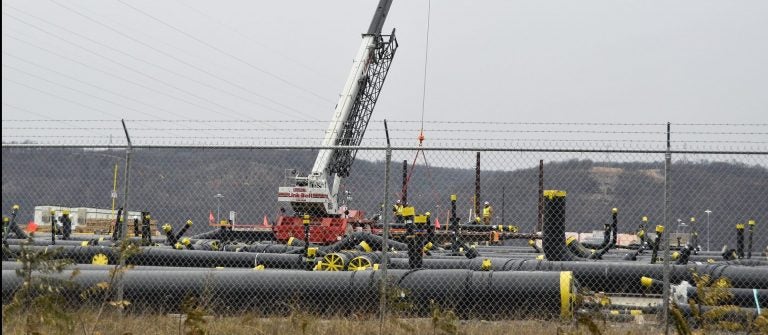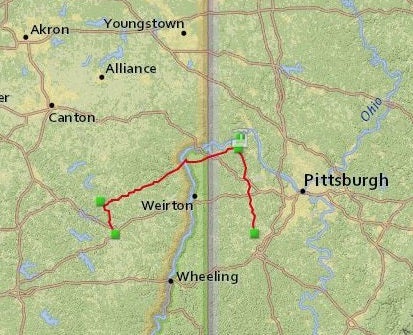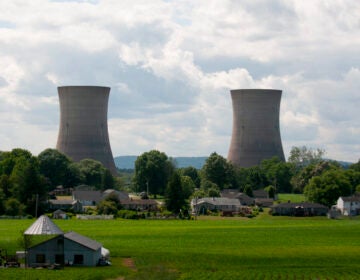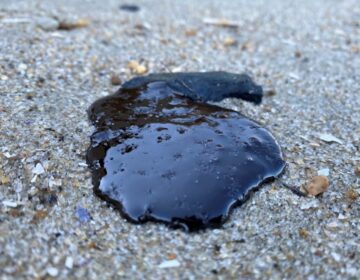DEP approves ethane pipeline to Shell’s cracker in Beaver County
Shell won state approval Thursday on a pair of permits for the pipeline that will feed ethane to its $6 billion chemical plant in Beaver County.

Construction takes place in December 2017 at the site of Shell's ethane cracker plant in Beaver County. (Amy Sisk/StateImpact Pennsylvania)
Shell won state approval Thursday on a pair of permits for the pipeline that will feed ethane to its $6 billion chemical plant in Beaver County.
The Pennsylvania Department of Environmental Protection approved two water permits for the company’s Falcon ethane pipeline. The 97-mile pipeline will run from Ohio and Pennsylvania to Shell’s ethane cracker in Potter Township.
The DEP approved Shell’s water obstruction and encroachment permit, as well as its erosion and sediment control permit.

In Pennsylvania, the pipeline’s route will go through Allegheny, Beaver and Washington counties.
“This allows Shell to begin some work, like tree clearing,” said Lauren Fraley, a DEP spokeswoman. The company is still awaiting approval from regulators from Ohio, West Virginia, and the Army Corps of Engineers to begin construction of the pipeline. Some work on the pipeline route is expected to begin in early 2019.
Virginia Sanchez, a company spokeswoman, said in an emailed statement that Shell “has taken significant steps to assess the potential impacts associated with the Falcon Pipeline System and it is confident that the measures to avoid, minimize, or mitigate these impacts can help to ensure public safety and environmental protection.”
The pipeline was opposed by environmental groups, and by the Ambridge Water Authority, which provides water to 30,000 customers in Beaver County. Authority general manager Michael Dominick argued in April the pipeline’s route went too close to its Ambridge Reservoir, and cut across an important water line to the reservoir. An accident there could have a “devastating effect” on the authority’s water supply, Dominick said in April.
Fraley said the company’s permit included “appropriate construction techniques and special conditions” near the reservoir and that the company was “in discussions” with the authority over its concerns.
Shell proposed to bore 31 feet under the reservoir’s water line using horizontal directional drilling. The company also proposed to have a standby crew at the reservoir during construction in the event of an accident, and to keep special repair equipment on site in the event that pipeline construction broke the reservoir’s water line.
Officials at the Ambridge Water Authority declined to comment on the DEP’s decision Thursday afternoon.
The U.S. Pipeline and Hazardous Materials Safety Administration would oversee construction of the pipeline.
Shell is also waiting word from DEP on whether the project needs any type of air quality permit, Fraley said.
Environmental groups that opposed the project pointed to problems with the Mariner East pipeline, which is being investigated by the Chester County District Attorney, and the September explosion of a natural gas pipeline in Center Township.
“It is very disheartening with all the other problems with pipelines across the state and country that the DEP would issue this hasty decision now,” said Lisa Graves-Marcucci of the Environmental Integrity Project, in an emailed statement.
WHYY is your source for fact-based, in-depth journalism and information. As a nonprofit organization, we rely on financial support from readers like you. Please give today.




